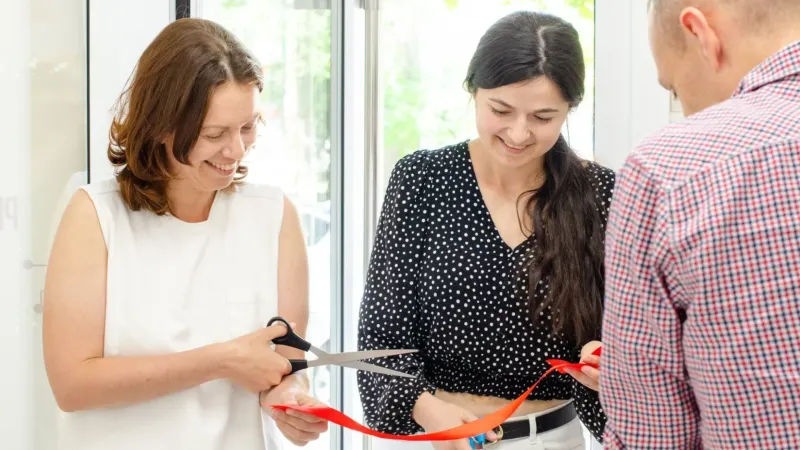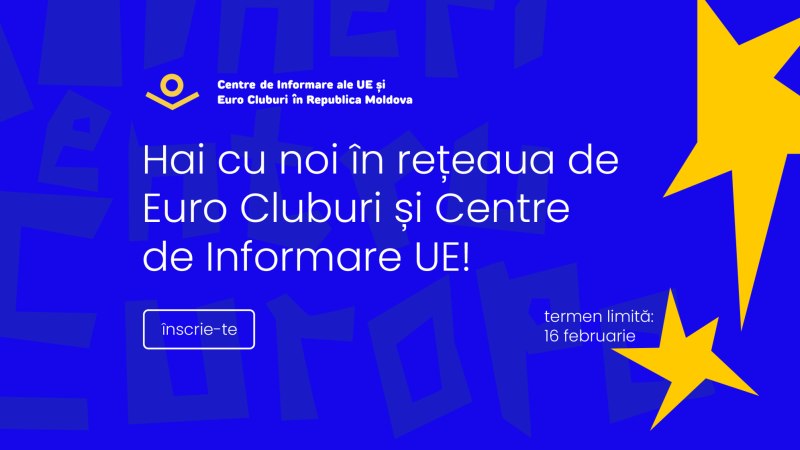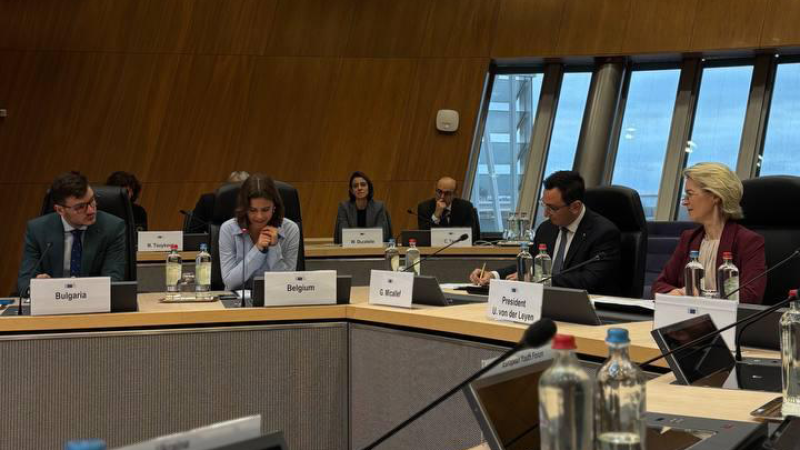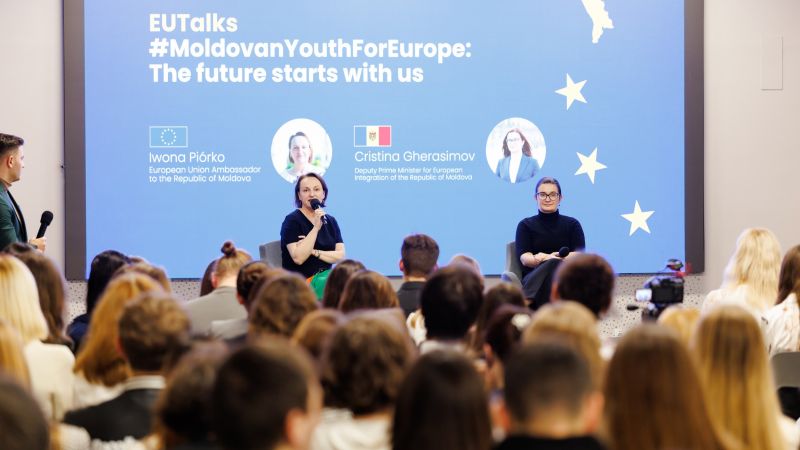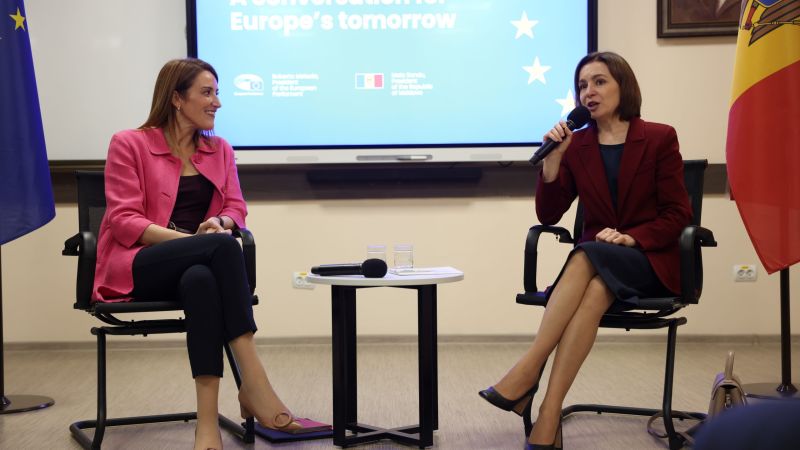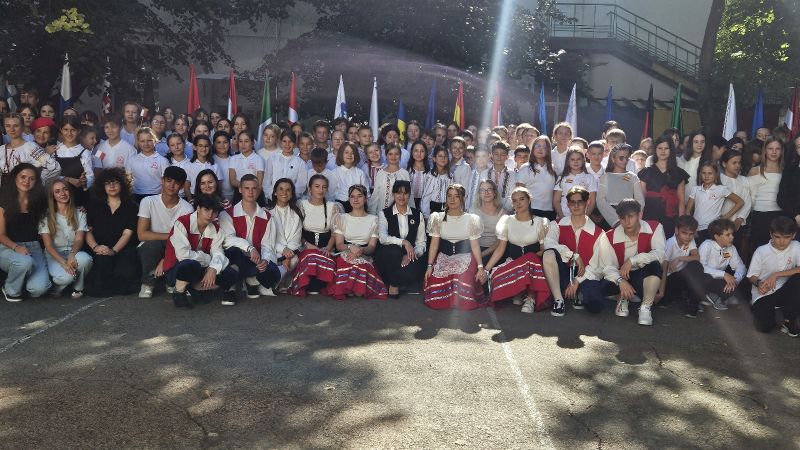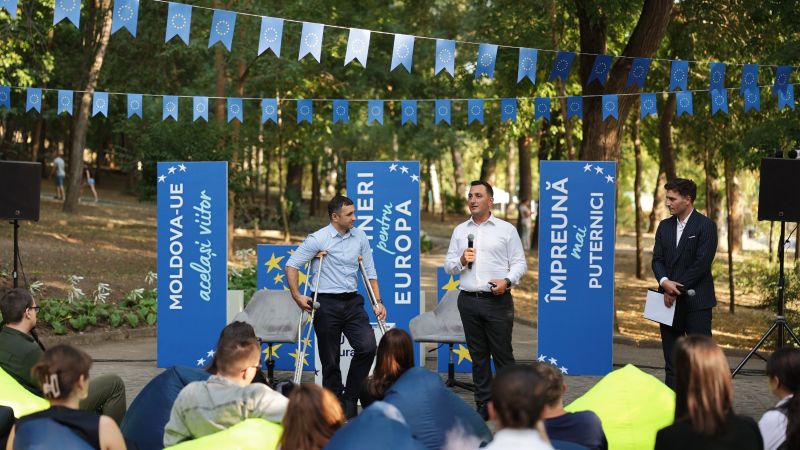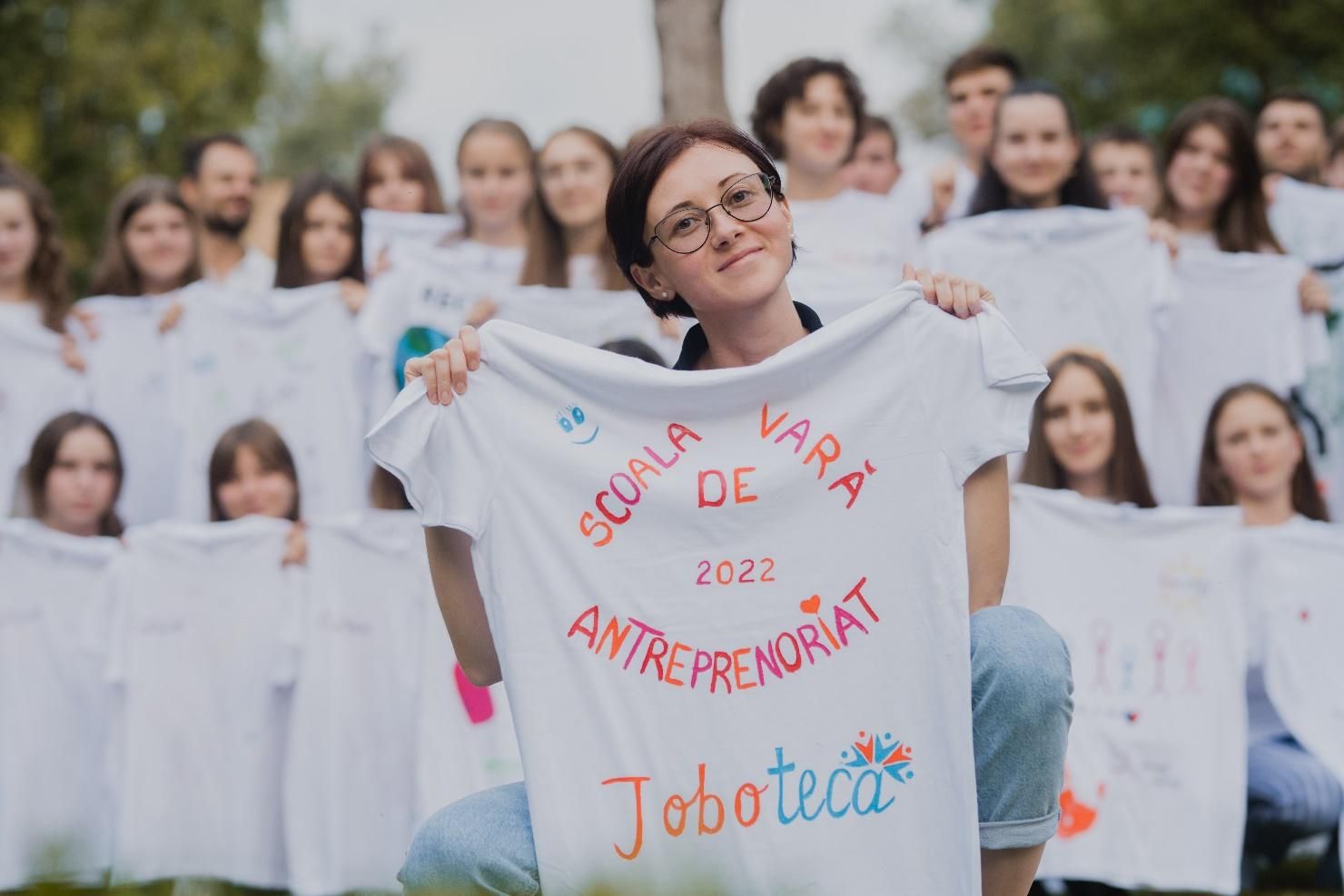
25 de adolescenți, participanți la Școala de vară de antreprenoriat organizată cu suportul UE, își vor dezvolta propriile idei de afaceri
Între 11 și 14 august, 25 de elevi, din 25 de școli din țară beneficiare în proiectul Joboteca, au participat la o școală de vară de educație antreprenorială, organizată cu suportul financiar al UE . Pe parcursul celor 4 zile, tinerii au avut ocazia să afle ce este antreprenoriatul, cum pot deveni antreprenori, au testat idei de afaceri și au participat la exerciții practice de scriere a etapelor unui plan de business.
Activitățile au inclus atât informații teoretice, cât și activități practice și creative, care să îi ajute pe elevi să testeze cum e să fii antreprenor și să inițiezi o afacere de la zero. Printre subiectele abordate se regăsesc: leadership, management, abilitățile unui antreprenor, de la idee la afacere, etapele de lansare a unei afaceri, promovarea afacerii, comunicarea în echipă, etc.
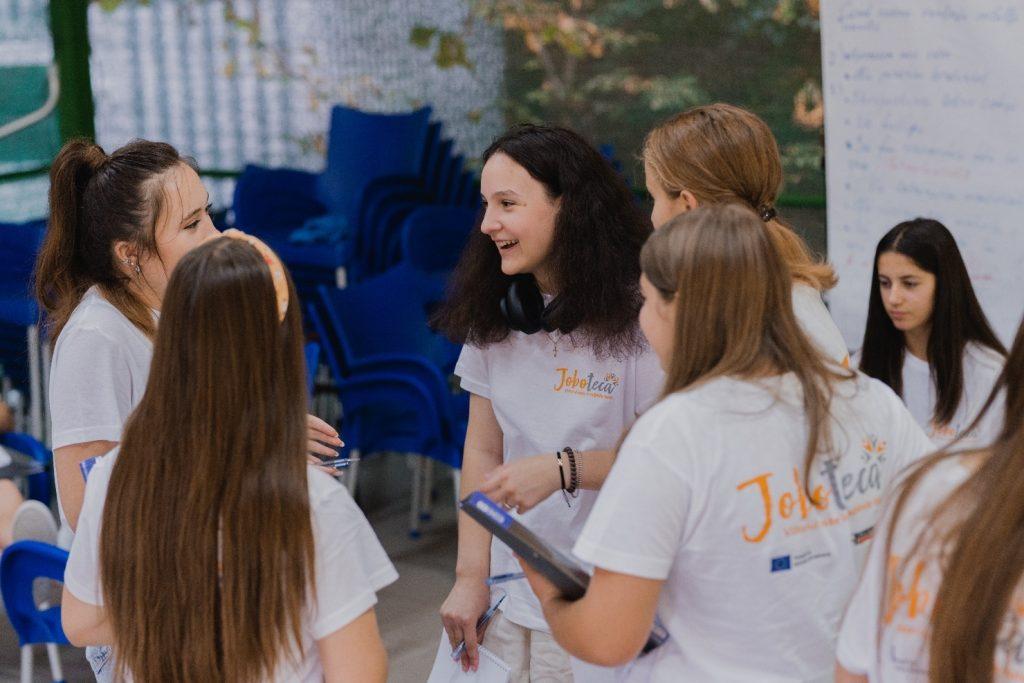
Viziune și așteptări
Participanții au venit la școala de vară cu dorința de a afla ce este antreprenoriatul și cum pot iniția o afacere, dar și pentru a deprinde și alte abilități pe care le consideră necesare pentru dezvoltarea lor personală și parcursul profesional.
„Îmi doresc de la această experiență să obțin cunoștințe despre ce înseamnă antreprenoriatul si ce ar trebui sa știu pentru a deschide o afacere și a avea o stabilitate economică în viitor. Totodată, mi-aș dori și să învăț să vorbesc în public fără emoții.”, spune Anatolie Savca, elev la liceul „Grigore Grigoriu” din Cârnățeni, Căușeni.
Dorina Zinovei, elevă la liceul „Mihail Sadoveanu”, din orașul Călărași a venit la Școala de antreprenoriat cu ideea de a crea un cinematograf în aer liber și are nevoie de susținerea trainerilor pentru a pune această idee pe picioare. „Mi-am dorit să particip pentru experiențe noi, nu doar din domeniul antreprenoriatului, dar și pentru a cunoaște alți tineri”, spune tânăra.
Idei de afaceri și muncă în echipă
Elevii au identificat domeniile în care doresc să inițieze o afacere, printre acestea enumerându-se: alimentație, divertisment, turism, reciclare deșeuri, educație, IT. Pornind de la domeniile de interes, tinerii au lucrat în grupuri pentru a-și contura primele idei, pe care le-au prezentat apoi celorlalți colegi. Cu ajutorul trainerilor și prin exerciții practice, ei au conștientizat ajustările de care au nevoie ideile lor, pentru a crea o strategie viabilă care, o dată pusă în practică, ar putea deveni o afacere de succes.
Ion Mocanu, unul dintre trainerii școlii de vară, susține că un astfel de program trebuie să îi ajute pe tineri să-și descopere pasiunile și să le ofere un fundament solid în educația antreprenorială. Ion Mocanu a remarcat că, inițial, elevii au venit cu idei de afaceri inspirate din familie și comunitate, însă „scopul nostru este să îi ajutăm să își identifice propriile vise și pasiuni și să le transforme în afaceri. Ideile care vin din pasiune și inspirație rezistă obstacolelor și înfloresc, inclusiv pe vreme de criză.”
„Totodată, un element important este conștientizarea responsabilității personale, crearea unei atitudini pro active: acțiuni zilnice de realizare a visurilor antreprenoriale sau sociale”, spune trainerul.
La finalul taberei, elevii au menționat că, în urma acestui program, au acumulat cunoștințe nu doar în domeniul antreprenoriatului, dar și informații de cultură generală, au cunoscut oameni noi și au aflat și despre alte oportunități. Tinerii au concluzionat că există resurse și posibilități suficiente, depinde de fiecare în parte să le valorifice eficient pentru a realiza ce și-au propus.
Planuri de viitor
Odată cu începerea noului an școlar, tinerii își vor crea echipe cu colegii din școală, cu care vor lucra la definitivarea ideilor. Exercițiile de consolidare a echipei, analiza SWOT sau strategia Canvas pe care le-au însușit la Școala de vară, le vor fi de folos atât pentru constituirea și consolidarea echipelor, cât și în lucrul asupra planului de afaceri.
„Prin intermediul acestui program, cei 25 de tineri au fost expuși la un alt tip de informație și o altă modalitate de predare decât ce văd la școală. Pentru noi este important ei să pună în practică ce-au învățat aici, să construiască echipe, iar, în următoarele 2 luni, să-și definitiveze ideile și să reușim să îi ajutăm să identifice surse de finanțare. Noi, în calitate de mentori, vom depune tot efortul pentru a dezvolta proiecte de lungă durată în aceste localități”, a explicat continuitatea programului Dorin Curoșu, formator la Școala de vară de antreprenoriat.
Pe parcursul următoarelor două luni, elevii vor avea suportul mentorilor, care îi vor ghida pas cu pas în crearea strategiei și îi vor ajuta să găsească potențiali finanțatori. Ei vor parcurge fiecare etapă de scriere a unui plan de business, astfel încât această experiență să le fie utilă și acum, dar și pe viitor, pentru alte idei.
În luna octombrie 2022, în cadrul unei Gale organizate de Terre des hommes Moldova, tinerii vor prezenta rezultatul muncii lor, vor face schimb de experiență și-și vor împărtăși planurile de viitor. La finalul celor două luni, elevii vor fi pregătiți să stabilească parteneriate și să își prezinte planul de afaceri potențialilor investitori, pentru a începe următoarea etapă, cea de inițiere a afacerii.
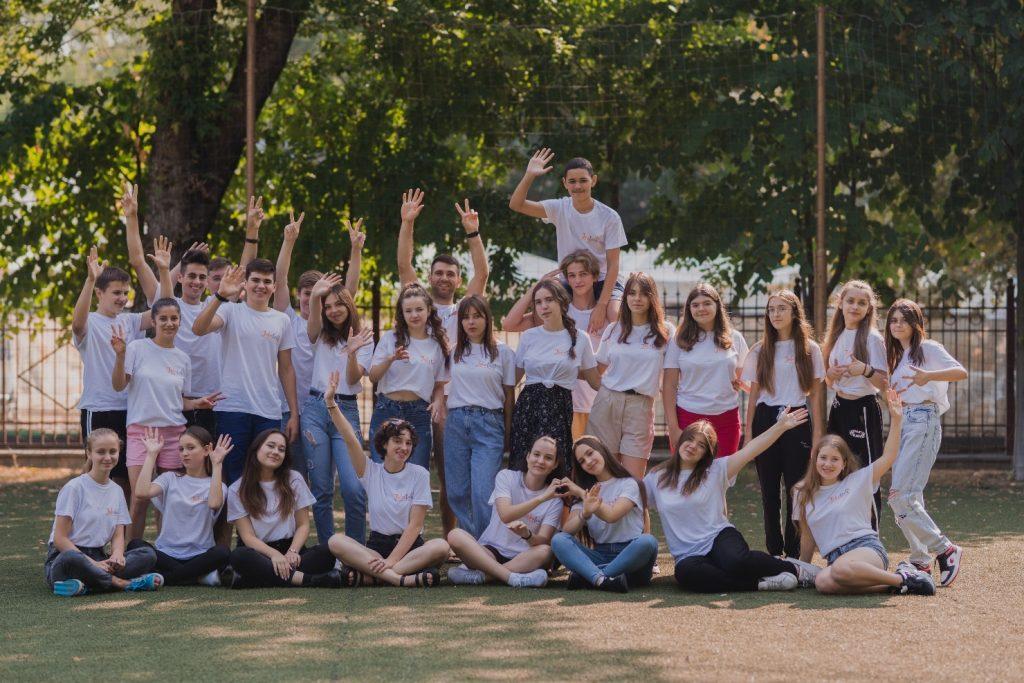
Proiectul „JOBOTECA – Program pilot de pregătire a tinerilor din Moldova pentru piața muncii” (2021 – 2024) este implementat de Fundația Terre des hommes, biroul România și biroul Moldova, în parteneriat cu Ministerul Educației și Culturii al Republicii Moldova și este finanțat de Uniunea Europeană.

